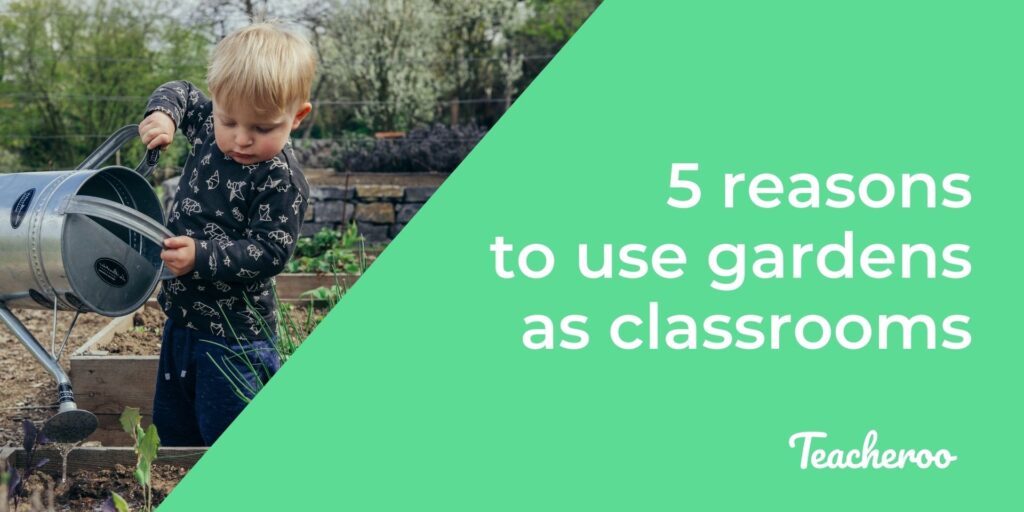Politician and polymath Sir John Lubbock wrote:
“Earth and sky, woods and fields, lakes and rivers, the mountain and the sea are excellent schoolmasters and teach us more than we can ever learn from books.”
While it’s inadvisable to ditch books – or today’s digital learning tools – most teachers agree the natural world has immense educational value. It also inspires pure joy.
So how do the great outdoors aid learning . . . and boost health, contentment and wellbeing?
The school garden
Playing with plants shows children the interconnectedness of all living things. Teachers can offer simple lessons such as sowing seeds. Watching the fruits of their labour grow inspires children to be curious about science. And have patience!
Pioneering nineteenth-century educator Friedrich Froebel encouraged the use of gardens as classrooms. This is where his belief self-activity and play are essential for learning had its literal roots.
His kindergarten offers spaces for planting and harvesting. These are also used for storytelling, music, dance and games. The result is an environment where youngsters learn together in harmony with nature.
It’s also a space where imaginations and creativity are allowed to be free, unconstrained by classroom walls.
The feel-good factor
The confidence-building benefits of regular contact with nature are highlighted in a study for The Wildlife Trusts.
The findings showed:
- 90% of schoolchildren felt they’d learned something new about the natural world.
- 79% said the experience could help school work.
- More than 84% felt more capable trying new things.
- 79% were more confident.
- 79% enjoyed better relationships with classmates.
- 81% had better relationships with teachers.
Health and wellbeing
Tech tools are incredibly useful in the classroom. However, for health and wellbeing, there’s no substitute for playing – and learning – in the real world.
Outdoor activities have obvious physical benefits. They boost motor skills, flexibility, stamina and muscle strength.
Exposure to natural elements and open air contributes to bone development and stronger immune systems.
Bring the activities into a green environment, such as a forest, and direct contact with nature also benefits mental and emotional health.
A sense of adventure
Friedrich Froebel also recognised the value of adventurous play outdoors. He pushed the positive lessons of challenging activities rather than focusing on risks.
This includes adventures such as climbing trees. In so-called risky play the teacher observes and gives either support or space.
This imparts important soft skills such as determination, problem solving and even entrepreneurship.
The Health and Safety Executive notes play is great for children’s development. It notes:
“The goal is not to eliminate risk, but to weight up the risks and benefits. No child will learn about risk if they are wrapped in cotton wool.”
Free thinking
Being aware of your own thoughts and personal emotions is highly significant in a child’s learning journey.
A garden, forest or field is not just a place for doing, it’s also for thinking and feeling.
Nature provides a place where young minds can explore without boundaries, developing a greater sense of self.
A shared experience
Good news! Teachers benefit from nature learning too. Alongside the key role of observing and supporting you can share that invigorating sense of simply being outdoors.
Studies show levels of stress and anxiety seem to evaporate in a natural outdoors environment.
This makes it easier and even more enjoyable to give fun lessons to contented and calm kids.
Why not share your own experiences of the joys of nature learning with other teachers in the Outdoor Education Group on Teacheroo?





